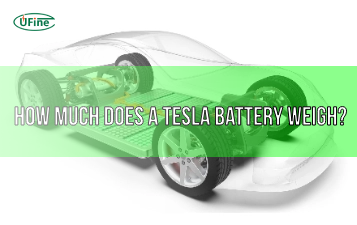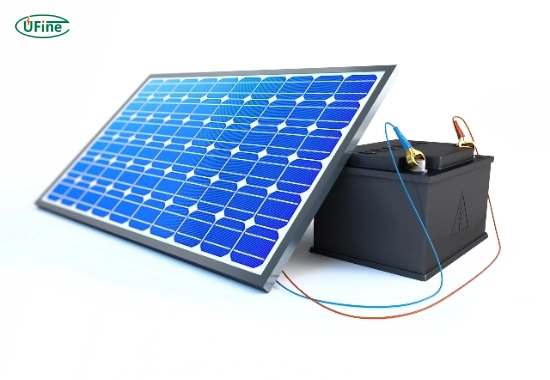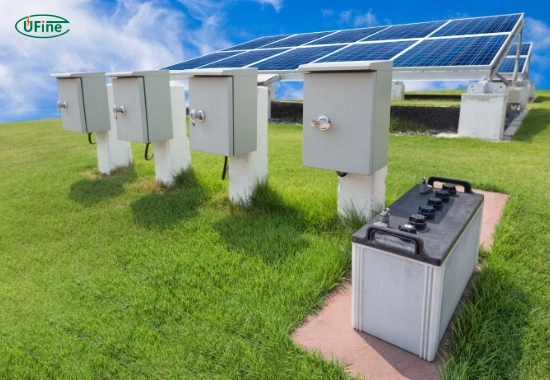How long do solar batteries last? Most last 5 to 15 years, depending on the type, usage, and environmental conditions. But that’s just the short answer. In this guide, we’ll explore the lifespan of solar batteries, what affects it, how to make them last longer, and when it’s time for a replacement.
Understanding battery lifespan is crucial to getting the most value from your energy system if you invest in solar power for your home or business.
Part 1. What is a solar battery?
A solar battery is a device that stores energy generated by your solar panels. Instead of sending all the electricity to the grid, solar batteries keep some of that energy for later use, like at night or during power outages.
There are different types of solar batteries, such as:
- Lithium-ion batteries (most common for homes)
- Lead-acid batteries (cheaper but bulkier)
- Saltwater batteries (eco-friendly but less common)
Solar batteries are becoming more popular as people look for ways to become energy independent and save on electricity bills.
Part 2. How do solar batteries work?
Solar batteries work by storing excess energy produced by your solar panels. When your panels make more electricity than your home needs, that power is directed to the battery. Later, your home can use the stored power at night or when it’s cloudy.
Think of it like a power bank for your house. Instead of drawing electricity from the grid, you use your stored energy.
Part 3. How long do solar batteries last?
Here’s the key question: How long do solar batteries last?
Most solar batteries last between 5 and 15 years. Some high-end lithium-ion batteries can even go up to 20 years with proper care. However, lifespan depends on several factors:
- Battery type
- Usage cycles
- Temperature
- Maintenance
- Depth of discharge (DoD)
Let’s break these down.
Part 4. What affects a solar battery’s lifespan?
Even though manufacturers may promise a 10+ year life, real-world conditions can shorten or extend that time. Here’s what really matters:
1. Battery chemistry
- Lithium-ion: Typically last 10–15 years. More expensive but better performance.
- Lead-acid: More affordable, but only last 3–7 years.
- Saltwater: Eco-friendly but not as widely tested. Lifespan varies.
2. Depth of discharge (DoD)
DoD refers to how much of the battery’s capacity is used. The deeper the discharge, the shorter the battery’s life. For example:
- A battery with 80% DoD means you can use 80% of its energy before recharging.
- Regularly draining a battery to 100% can wear it out faster.
3. Charge cycles
Every time a battery charges and discharges, that’s one cycle. Most batteries are rated for a certain number of cycles—typically 3,000 to 6,000.
4. Operating temperature
Solar batteries don’t like extreme heat or cold. Too hot? Chemicals break down. Too cold? Performance drops. The ideal range is 60°F to 80°F (15°C to 27°C).
5. Maintenance and installation
Poor installation or lack of maintenance can cut years off a battery’s life. Always use a certified installer and follow the manufacturer’s care guidelines.
Part 5. How can you make solar batteries last longer?
Want to get the most out of your solar batteries? Here are some simple tips:
- Avoid deep discharges: Don’t let the battery go empty often.
- Keep it cool: Install in a shaded, temperature-controlled area.
- Regular inspections: Check for signs of wear or damage.
- Use a smart inverter: It helps manage battery charging efficiently.
- Follow manufacturer guidelines: Don’t ignore those manuals!
Taking care of your battery is much like caring for a car. Regular check-ups and gentle use help it last longer.
Part 6. When should you replace a solar battery?
You should consider replacing your solar battery when:
- Storage capacity drops below 60-70%
- You notice frequent power outages
- The battery doesn’t charge fully
- It’s been more than 10 years (for lithium-ion)
- You’re upgrading your solar system
Most systems start experiencing noticeable drops in performance after 8 to 10 years, even if they’re still technically working.
Part 7. What are the signs your solar battery is dying?
Here are some warning signs that your solar battery is on its last legs:
- Shorter power backup time
- Longer charging times
- Weird noises or smells
- Error messages from the inverter
- Visible corrosion or leaking
If you notice any of these, get a professional to inspect your system.
Part 8. Are solar batteries worth it?
This is a common question. While they’re an investment, solar batteries can be worth it if:
- You live in an area with frequent power outages
- You want to reduce your electricity bills
- You’re aiming for energy independence
- You have time-of-use (TOU) electricity rates
Although the upfront cost can be high, rising energy prices and the push for clean energy mean that they can pay off in the long run.
Part 9. Solar battery warranty vs. lifespan
Many people confuse warranty with lifespan. They’re related but not the same.
- A warranty is a guarantee by the manufacturer, typically for 5–10 years.
- The lifespan is how long the battery will work, often 10–15 years.
Just because the warranty ends doesn’t mean the battery stops working. It just means the manufacturer stops covering repairs or replacements.
Part 10. How to choose a long-lasting solar battery?
If you’re shopping for a battery that will go the distance, here’s what to look for:
- High cycle life (at least 5,000 cycles)
- Good DoD (80% or higher)
- Long warranty
- Brand reputation
- Scalability (can you add more storage later?)
- Smart features like temperature control or remote monitoring
Brands like Tesla Powerwall, LG Chem, and Sonnen are known for quality and durability.
Part 11. FAQs about solar battery lifespan
How long do solar batteries last on average?
Solar batteries last 10 to 15 years on average, depending on type and usage. Lithium-ion batteries last the longest.
Can I use solar batteries during a power outage?
Yes! You can use stored energy during blackouts if your system includes a battery and a hybrid inverter.
Is it okay to leave solar batteries unused?
Not really. Batteries degrade faster when not used. A regular charge-discharge cycle keeps them healthy.
Do solar batteries work in winter?
Yes, but cold temperatures can reduce efficiency. Installing them indoors or in insulated enclosures helps.
How do I know if my battery is still good?
Check your system’s performance metrics. If the battery charges slower, drains faster, or shows errors, it may be time for a replacement.
Related Tags:
More Articles

How Much Does a Tesla Battery Weigh?
Tesla batteries weigh 900–1,800 lbs depending on the model. Learn why battery weight matters and how it impacts performance, range, and efficiency.
How to Remove a Lawn Mower Battery?
Learn how to safely remove a lawn mower battery with step-by-step instructions, safety tips, tools, and maintenance advice in this complete guide.
What Is a Router Battery & Do You Need One
Learn what a router battery is, why it matters, and how to choose the best one to stay connected during power outages or on the go.
The 10 Best Car Battery Manufacturers: A Complete Guide
Looking for the best car battery brands in 2025? Discover the top 10 manufacturers known for performance, safety, and innovation.
What Is a VRLA Battery and Why Are Many Users Upgrading to Lithium?
VRLA batteries are sealed lead-acid types, but many now switch to lithium for better lifespan, efficiency, and weight in modern power systems.





